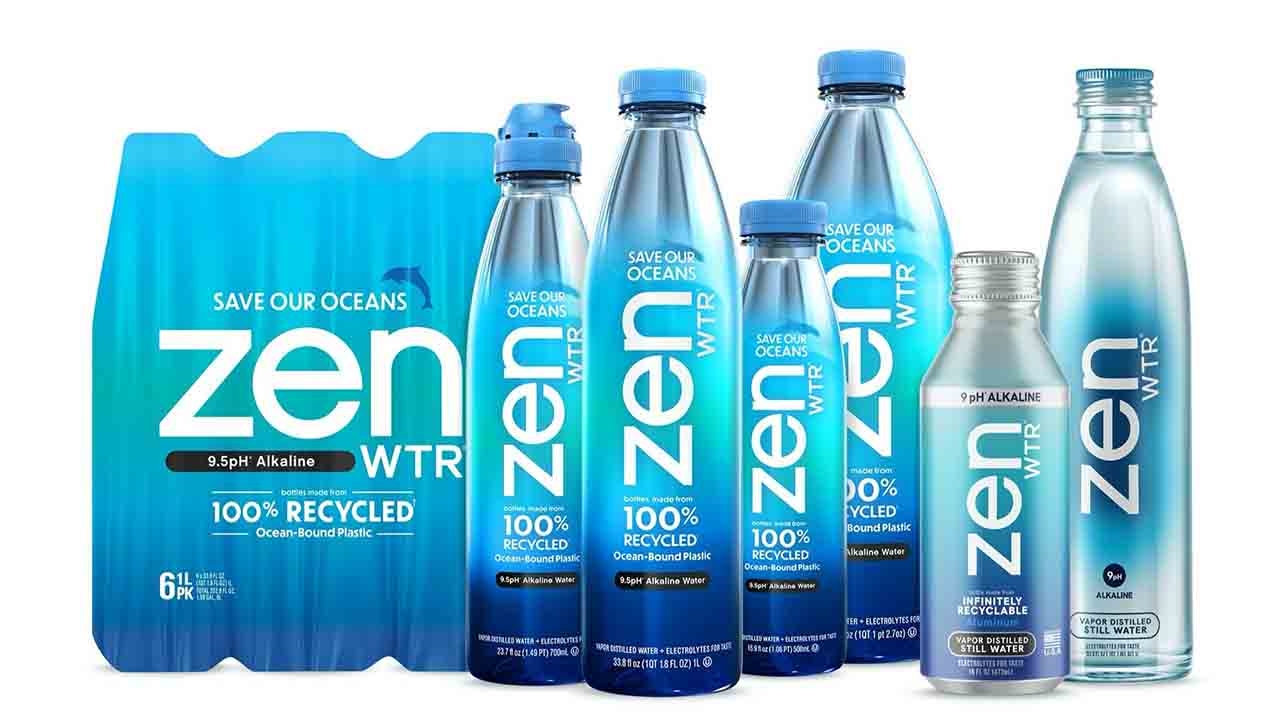ZenWTR updates branding and packaging
The new bottle is made from 100 percent recycled, certified ocean-bound plastic and features a new label look

Beverage brand ZenWTR has updated its packaging and branding. The new bottle is made from 100 percent recycled, certified ocean-bound plastic and features a new label look..
ZenWTR has introduced an eye-catching new label with a premium blue ombre design, intended to evoke the look of the ocean with brand's mission atop the bottle to ‘Save our oceans’ while the back panel highlights its sustainability story and the positive impact of each ZenWTR bottle made.
With a commitment to combat global plastic pollution by using recycled ocean-bound plastic to make its bottles, ZenWTR is on its way to achieving its goal of rescuing 50 million pounds of ocean-bound plastic by 2025. Every bottle of ZenWTR is made from up to five recycled certified ocean-bound plastic bottles. The brand has also achieved Plastic Negative Certification and donates 1 percent of all sales to credible organizations focused on ocean conservation and recycling advancement in the US.
ZenWTR is expanding beyond its recycled Ocean-Bound PET packaging for the first time ever, launching a new package this summer, testing a 16oz Alumi-Tek bottle, in advance of a wider launch in 2024. The brand will be adding a 1 liter glass bottle to its product lineup as well.
Lance Collins, ZenWTR founder and beverage industry veteran, said: ‘Our vision is for ZenWTR to be the go-to brand for sustainable, premium packaged water. This new Alumi-Tek bottle is 100 percent infinitely recyclable and creates an additional sustainable format option for consumers to enjoy ZenWTR. Aligned to our company's mission, we're working with the Plastic Credit Exchange (PCX) to support organizations and programs that divert plastic waste from nature and invest in the circular economy. Through the partnership, we take responsibility for the equivalent of equivalent of 5 ocean-bound plastic bottles for every Alumi-Tek bottle sold, preventing them from reaching and polluting the ocean. No one else is doing that.’
Stay up to date
Subscribe to the free Label News newsletter and receive the latest content every week. We'll never share your email address.

